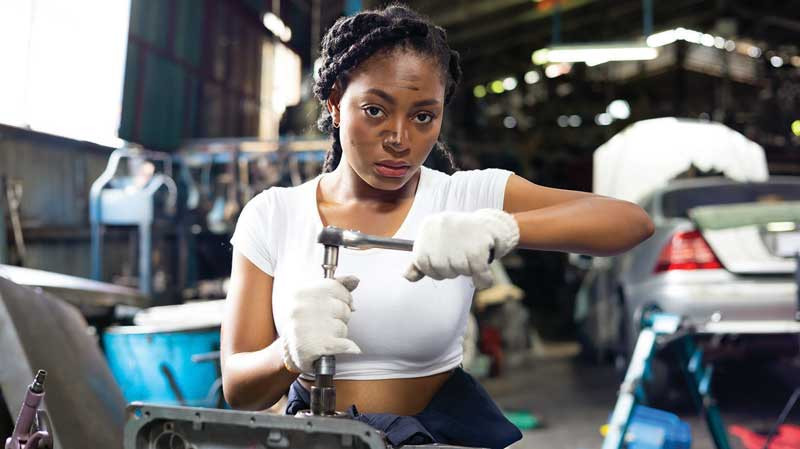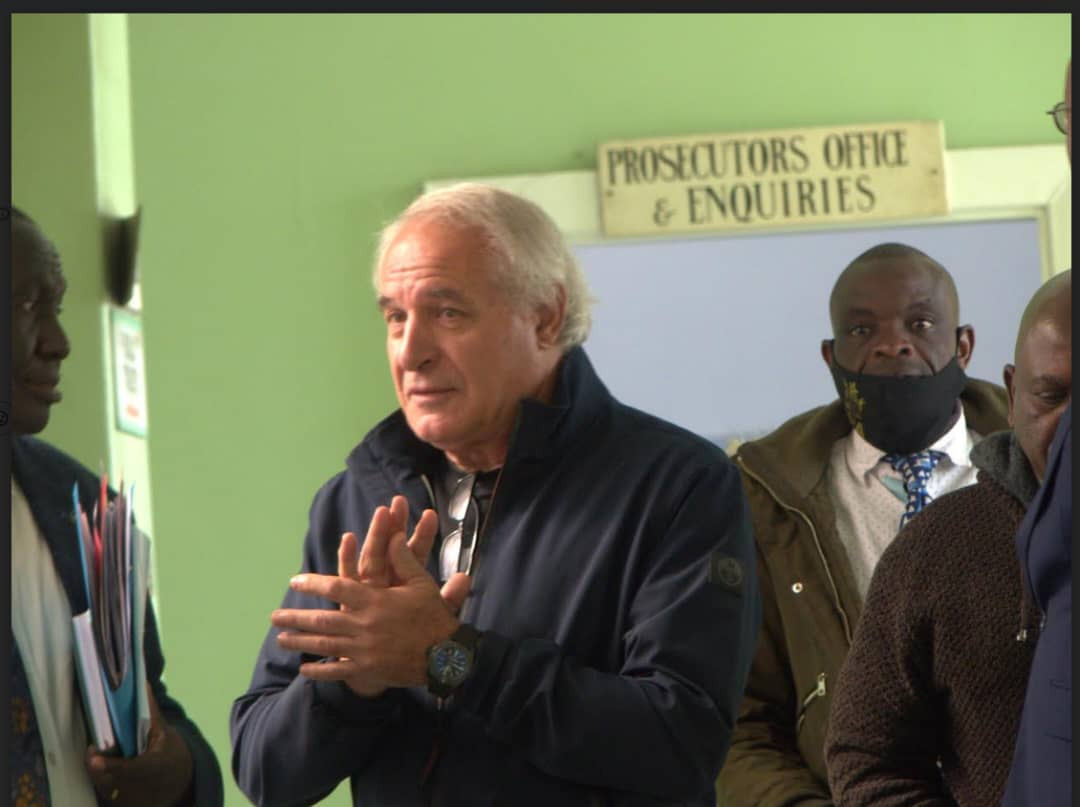
After a vacation, everyone is a little less tense. Your car is the one that most likely did not get any rest at all! Actually, if you took it on a Bundu road trip, it was subjected to the inevitable wear and tear, sand, stones and other environmental hazards that come with being near the dust road.
Get a check-up for your automobile when you come back from vacation so you can evaluate its condition before going back into your regular schedule; after all, your reliable mode of transportation is committed to being by your side every day.
When you get back from a much-needed vacation, the last thing on your mind is probably the administrative tasks you put off while you were basking in the sun at some resort or kumusha.
Getting back into the swing of things at work, paying bills, and stocking up on school clothes and supplies, take up most people’s time. Even though they were reliable over the holidays, many individuals neglect to give their cars the TLC (tender loving care) they require during this hectic season.
After a vacation, taking care of your car should be high on your list of priorities as you get ready for the new year.
In order to keep your car running smoothly, consider the following advice:
Make sure each light is working
Never wait until it’s too late to fix broken headlights or brake lights. When you get back, make sure they are still functioning well by checking on them. You should keep them in pristine shape since they are additional car safety measures.
- Car treatment after holiday travel
- Govt bans vacation lessons
- Govt under fire over holiday lessons ban
Keep Reading
Ensure you have enough brake fluid
Over time, brakes experience wear and tear and can need replacement. Seek the opinion of an expert if you have any uncertainty about the state of your tyres.
Find and fix any faults.
While on vacation, did you see anything out of the ordinary? Have you lost a taillight? Was there a problem with one of your windscreen wipers? Are there any lingering issues with the internal components? You should take care of these issues without waiting for your car’s service due date.
Thoroughly clean your car.
Over time, a vehicle will wear out. Make sure to clean the interior and exterior of your automobile. You may “inspect” every crevice of your car for any damage that may have happened while on vacation by washing it yourself with the right chemicals and clothing.
Verify your car’s documentation.
Take a picture and set an alert on your phone to remind you when the vehicle’s licence disc renewal is due, and review your insurance and warranty, if applicable. Maintaining accurate and up-to-date vehicle documentation is critical for your legal protection in the event of an accident and for the continued legal operation of your vehicle.
Next service is due date
Your car will have accumulated a lot of kilometres if you have gone on a lengthy road trip. To ensure that its service history is current, check the date of its next service.
Why thorough cleaning is important
Typically, we take great care of our vehicle before we go on vacation, but when we get back, we don’t give it the same attention.
Cars become filthy on the inside and exterior from the constant tracking of dirt, dust and leaves, which may eventually penetrate the upholstery. You should clean them with a specialised product and apply a sanitiser to keep them in great shape.
One of your car’s deadliest enemies is sand, which may get into the working parts, the passenger area and other areas with the least wind. Additionally, be sure to inspect and, if needed, change the filtering components. Careful cleaning of the vehicle’s body, gaskets, engine, wheels and brakes is necessary to remove the sand and stone residue.
Keeping up with routine maintenance is essential for extending the life of your vehicle. Don’t forget to check on its health even after you are back from your vacation.
Worn-out tyres
There are other parts that are under stress besides the engine and body. To keep the tyres in good condition, it is important to visually examine them for signs of wear and tear and to clean them regularly to remove the destructive effects of stones and sand from the tyres.
A tyre wear inspection is also recommended after long-distance travel. The heated asphalt makes tyres wear out faster, particularly low-quality ones. Tyre tread may also be damaged by uneven road surfaces; if you see anything unusual, don’t hesitate to visit your nearby tyre professional.
Be wary of the sun
You should remember to shield your vehicle from the sun’s rays in the same way that you shield your skin from the sun.
Actually, being outside in the heat may be harmful to your health. Insects and tree sap can settle inside plastic and paint, contaminating both. Over time, the paint can become irreparably damaged due to the corrosive effects of the sun’s heat.
Additionally, the acidity of the rain, chemical dust, and exhaust fumes all contribute to the fading and tarnishing that may occur on a car's body due to the extended heat.
What safety measures can you implement? The first piece of advice is to park as far from the sun as possible, preferably in a covered spot or under some shade. To remove organic residues from the paint and glass, wash the automobile often, preferably once a month.
Remember to care for your vehicle with the right products: after washing, use a sealing wax to prevent paint corrosion; on the dashboard, plastic components, and leather upholstery, use a creamy, gel, or balsam-based solution to maintain their softness.
Oil and filter checks
Last but not least, before the rainy season begins, it’s important to make sure the automobile is in top shape by checking the wipers, oil, filters and brakes. Discs, pads, callipers, and the braking system as a whole may be safeguarded by inspecting the brake fluid.
Brake fluid is hygroscopic, meaning it absorbs moisture and promotes the vapour lock effect. As a result, it degrades more quickly in humid situations. So, before the lubricating action deteriorates and wears down the brakes, discs, and pads, it’s vital to fill up or replace the brake fluid, making sure to carefully follow the manufacturer's instructions.
Be sure to inspect your spare tyre
Were you going to need to change a tyre while you were away? Then you should make sure your spare tyre is in decent condition and, if needed, get a new one.
Furthermore, ensure that all the necessary equipment is still in its proper locations if you have ever had to replace a tyre. Also, this is an excellent moment to make sure your warning triangle and any other emergency equipment you have in your car (such as a first aid kit) are in good working order.
In 2024, be a positive role model for other drivers by not just maintaining a clean and safe car, but also by being respectful of other drivers and the laws of the road. — andrew@muzamhindo.com










